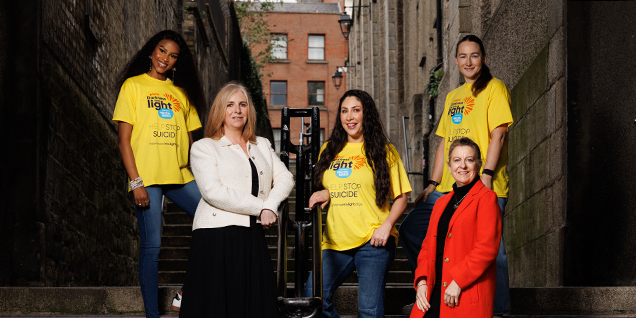What's eating your home's energy? Tips to keep your energy bills at bay
As long summer evenings stretch into the night, there hasn’t been a better time to do a personal audit on your energy usage. With your heating system resting up and the lights merely on standby, now is a good time to create an energy strategy and plan for greater efficiency next winter.
So, what’s using most energy?
Your central heating system is the biggest consumer of energy in the home – accounting for about 60% of your overall energy bill. How you operate your heating offers you the greatest potential for savings.
On the appliance front, a good rule of thumb is that any electrical appliance that heats water costs the most. So, your dishwasher, washing machine, electric shower and immersion top that list. It takes a lot of power to heat the water, thereby pushing your consumption up, and in turn your bill.
Fridges and freezers are on all the time and so account for a sizeable amount of your bill. Cooking appliances, especially the oven and hob can also be hard on electricity. And while lighting and electronics do not cost a lot overall, they can add significantly to your annual bill if you use them a lot.
Save energy: top 6 tips
1. Turn your thermostat down
Did you know that if you turn your thermostat down by just one degree, you can reduce your heating bill by 10%?
It should be comfortable enough if you set it at 18-20°C for your living and working area, if you’re working from home. Hallways and bedrooms can be cooler, at between 15-18°C.
Investing in a smart thermostat is also a good idea. It gives you greater control over your heating system, tracks your energy usage and lets you control your heating remotely via phone or tablet. This way, you can over-ride the timing settings if you’re not at home and forget to turn off the heat, for example.
2. Heat just the area you live in most
Only heat the rooms you’re using. Turn them down or off in other areas. Also, radiators will keep rooms warm for some time after the heating is turned off. So turn your heating off 30 minutes before you finish work (if working from home), leave the house or go to bed.
Also, to get the most from your heating, put a reflector behind the radiators. This will reflect the heat back into a room rather than seep out through the wall. You can buy radiator reflectors by the roll in most hardware stores. This can contribute to a 35% decrease in heat loss.
3. Tackle draughts
Check all over your house for draughts. Cold air can come up through the floor and from around your skirting board. Some simple things you can do that will make a difference:
Plug gaps with silicon sealant.
Close the curtains in the evenings to keep heat in.
Put a chimney balloon in unused chimneys to keep draughts out and heat in.
Fix seals or draught excluders to your doors.
Check the SEAI website (www.seai.ie) for information on grants available for insulating your home.
4. Track your electricity usage
The most effective way to cut your electricity bill is to use less. One of the best ways to go about using less is to monitor your usage. ESB Networks is currently installing smart meters nationwide – if you don’t already have one, you will be getting one soon.
Smart metres give you access to accurate information on your usage, giving you greater control over your energy consumption. You will also be able to monitor which appliances are using the most energy – and like the meter, you can become smarter around using electricity.
For example, did you know cheaper, greener electricity is available at ‘off-peak times’. This is typically from 11pm to 8am. So, when your ESB smart meter is installed, you will have access to off-peak electricity plans. With this, you can make easy savings by charging your electric car, running your washing machine and dishwasher on off-peak electricity.
5. Plug out all appliances when not in use
This goes across the board – from the toaster to the TV. Pay particular attention to computers and printers. Even in standby mode they are using 20% of the energy they would consume if they were switched on.
With remote and hybrid working, many of us only use laptops. A lot of the time we leave them plugged in while we work. Your laptop battery, however, will last almost a full day when fully charged. So, save electricity by plugging it out and work off the battery. The same applies to your mobile phone.
And while we’re on the subject of computers, don’t forget to turn down the brightness of your monitor – a very bright monitor uses more energy.
A few other simple rules around appliances include:
Don’t put on your dishwasher or washing machine if they are only half full.
Hang out your washing rather than use the tumble dryer.
Don’t fill the kettle – only boil as much water as you need.
Don’t leave the fridge door open. It will take 45 minutes for the fridge to cool down to its original temperature.
6. Be smart with your lighting
Switch to LED lights. They use about a fifth of the energy of halogen bulbs. They may be more expensive than halogen but will save you money in the long term. According to the SEAI, switching a single 42-watt halogen bulb to a 9-watt LED, will save about €7 a year. And LEDs last up to 10 times longer.
Be sure too to make the most of natural light. If you are working from home, position your desk near the window. Try not to switch lights on out of habit. Hold off until it’s an absolute necessity. Remember to always turn off the lights when you are leaving a room or where you do not need them.
Read more: Visit our Interactive Home for more energy-saving tips
Read more: How to save money when heating your home
Read more: How to save money on everyday home appliances
Follow Electric Ireland on social media: Twitter: @electricireland Facebook: @ Electric Ireland Instagram: @electricireland
Recent News

Electric Ireland and Pieta Launch 2025 Darkness Into Light Campaign with Ambassador RuthAnne
Read More
Electric Ireland announces the 2025 Electric Ireland GAA Higher Education Rising Stars Football Team of the Year
Read More
